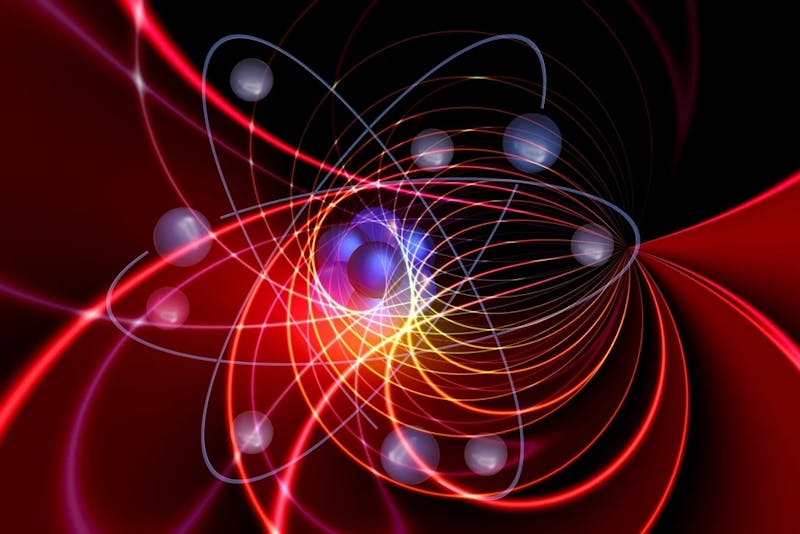Science
Scientists Awarded 2025 Nobel Prize for Breakthrough in Quantum Mechanics

The 2025 Nobel Prize in Physics has been awarded to three prominent scientists: John Clarke from the University of California, Berkeley, Michel H. Devoret from Yale University and the University of California, Santa Barbara, and John M. Martinis, also from the University of California, Santa Barbara. This recognition honors their groundbreaking work on “the discovery of macroscopic quantum mechanical tunneling and energy quantisation in an electric circuit.” This year coincides with the International Year of Quantum Science and Technology, marking a century since the inception of modern quantum mechanics.
Understanding quantum mechanical tunneling begins with the nature of particles in the quantum realm. Unlike classical particles, which are defined by specific locations, quantum particles exist in a state of probabilities. According to Schrödinger’s equation, there exists a chance that a particle can pass through a barrier, even when it lacks sufficient energy to do so. This phenomenon, known as quantum tunneling, enables particles to traverse barriers that would be impossible for classical objects, akin to walking through a wall.
While the concept of tunneling was first recognized in 1973, which laid the groundwork for quantum computing and devices like scanning tunneling microscopes, it was limited to microscopic particles. Clarke, Devoret, and Martinis expanded this concept in 1985 by demonstrating quantum tunneling not just for individual particles but for collections of particles, specifically currents composed of millions of electrons. This significant advancement in understanding macroscopic quantum tunneling opens new avenues for technological innovation.
The implications of this discovery are profound, particularly in the realm of quantum computing. Quantum computers have the potential to solve complex problems at speeds unattainable by traditional computers. The advancements in quantum mechanical tunneling could enhance the performance of these machines, enabling them to execute intricate calculations more efficiently. Furthermore, the principles derived from this research may lead to advancements in several emerging quantum technologies, including quantum cryptography for secure communications and quantum simulations for modeling complex systems in medicine, chemistry, and biology.
As industries ranging from semiconductor manufacturing to financial services begin to explore these new possibilities, the demand for quantum technologies is expected to surge. This breakthrough not only represents a significant scientific milestone but also heralds a new era of innovation driven by quantum mechanics.
The excitement surrounding the announcement is palpable among students and scholars in the field. Peter Seelman, a physics major at the Whiting School of Engineering, shared his enthusiasm in an email to The News-Letter: “Having just given a presentation on the math behind the prize for a physics class, it still feels like magic, but it’s justified magic. The laureates ran experiments that took this quantum phenomenon and expressed it in a macroscopic circuit large enough to be held in your hand. I love physics because it’s the study of the magic behind the universe, and experiments like these that examine the ‘why’ and the ‘how’ of that magic are doubtless worthy of this great honor.”
The 2025 Nobel Prize serves not only as a recognition of individual achievement but also as a reminder of the power and potential of scientific inquiry to unlock new realities in our understanding of the universe.
-

 Science3 weeks ago
Science3 weeks agoInventor Achieves Breakthrough with 2 Billion FPS Laser Video
-

 Health4 weeks ago
Health4 weeks agoCommunity Unites for 7th Annual Into the Light Walk for Mental Health
-

 Top Stories4 weeks ago
Top Stories4 weeks agoCharlie Sheen’s New Romance: ‘Glowing’ with Younger Partner
-

 Entertainment4 weeks ago
Entertainment4 weeks agoDua Lipa Aces GCSE Spanish, Sparks Super Bowl Buzz with Fans
-

 Business4 weeks ago
Business4 weeks agoTyler Technologies Set to Reveal Q3 Earnings on October 22
-

 Entertainment4 weeks ago
Entertainment4 weeks agoMother Fights to Reunite with Children After Kidnapping in New Drama
-

 World4 weeks ago
World4 weeks agoR&B Icon D’Angelo Dies at 51, Leaving Lasting Legacy
-

 Health4 weeks ago
Health4 weeks agoCurium Group, PeptiDream, and PDRadiopharma Launch Key Cancer Trial
-

 Entertainment4 weeks ago
Entertainment4 weeks agoRed Sox’s Bregman to Become Free Agent; Tigers Commit to Skubal
-

 Top Stories3 weeks ago
Top Stories3 weeks agoFormer Mozilla CMO Launches AI-Driven Cannabis Cocktail Brand Fast
-

 Science4 weeks ago
Science4 weeks agoNorth Carolina’s Biotech Boom: Billions Invested in Manufacturing
-

 Health4 weeks ago
Health4 weeks agoNorth Carolina’s Biotech Boom: Billions in New Investments









